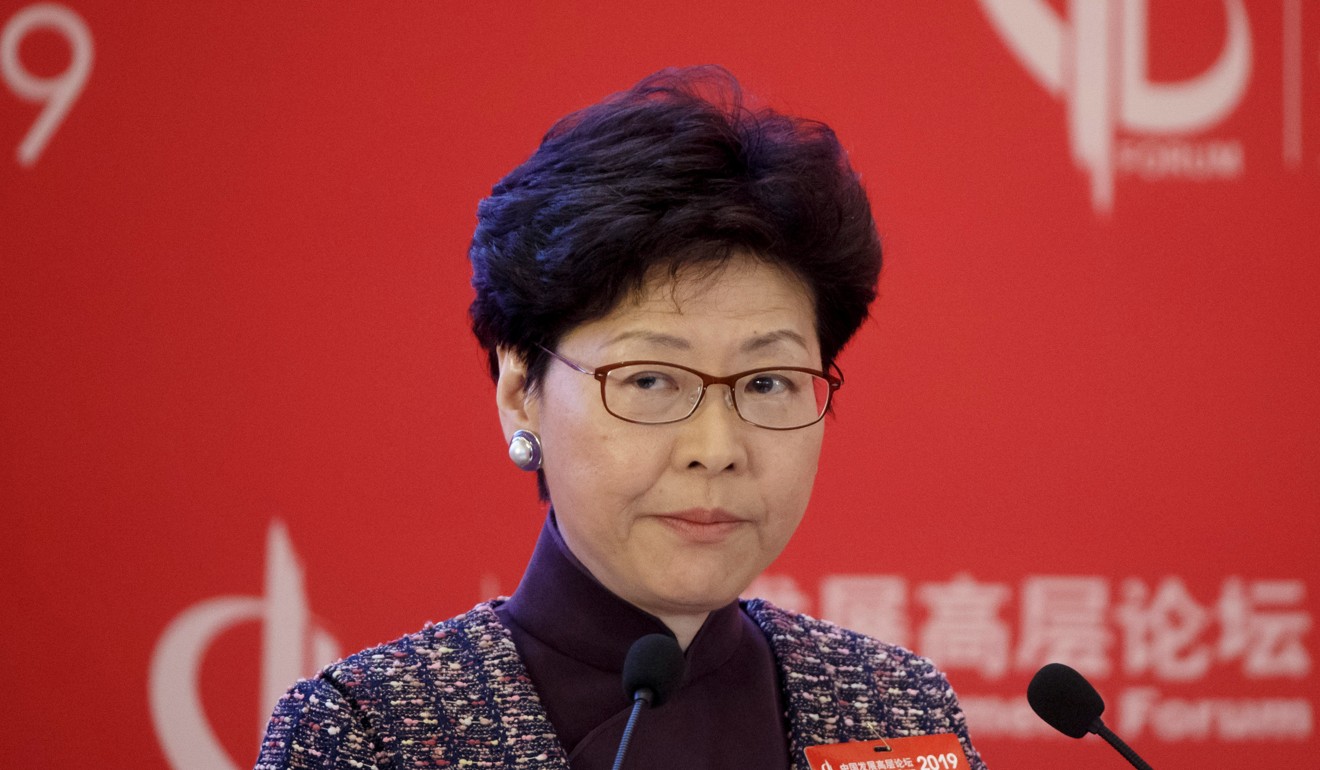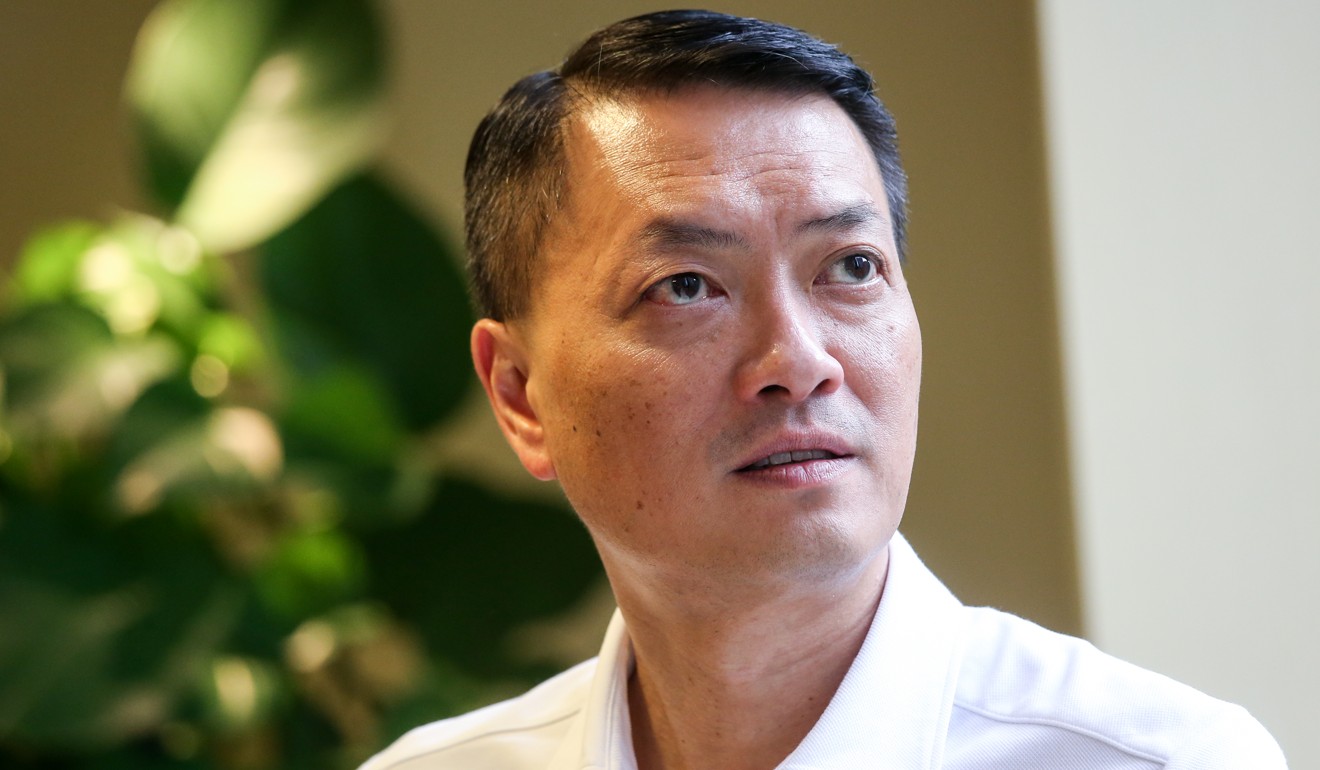Hong Kong’s pro-democracy lawmakers seek last-minute adjustment to extradition bill to ensure Taiwan murder suspect faces justice
- New proposal seeks a sunset clause that would allow extradition to Taiwan for a limited of time
- Legislative Council holds first meeting on proposed law on Wednesday

Hong Kong’s pro-democracy bloc has urged the government to take a “practical and feasible” approach to the controversial extradition bill by inserting a sunset clause to make sure the very murder suspect who triggered the bill would be handed over to face justice.
The proposal on Tuesday was made a day before the Legislative Council convenes its first meeting on the proposed law, which would allow the transfer of fugitives to places where Hong Kong lacks an extradition deal, including mainland China, Macau and Taiwan.
“The pan-democrats have shown their true intentions in tackling the [murder] case,” said Alvin Yeung Ngok-kiu, leader of the Civic Party.
“The government and the pro-establishment camp should support this proposal if they indeed want to see justice for the victim.”
But Chief Executive Carrie Lam Cheng Yuet-ngor and her allies have also cited the highly publicised homicide that is their argument for the amendment. They said the new extradition bill was meant to fix the legal loophole the gruesome case had exposed.
In the case in question, Hongkonger Chan Tong-kai was wanted by police in Taiwan for allegedly murdering his pregnant girlfriend while there on holiday. Despite what seemed a clear case, Hong Kong’s extradition laws prevented him from being sent back to the self-ruled island.
The situation changed dramatically last week when Chan pleaded guilty to money laundering charges.
They are definitely not serving justice for the deceased if they turn it down.
With his guilty plea, the 20-year-old student could end his prison sentence – which will be handed down on April 29 – before the extradition law is passed. If this plays out, legal experts said, Chan might be able to leave Hong Kong for nations that have no extradition deal with Taiwan.
On Tuesday, Lam said that the city is “racing against time” to amend the law, and she hoped the bill could be passed before July, regardless of the situation with Chan’s jail sentence.
“If we cannot win the race with time and provide a legal basis to extradite fugitives, it will be an undesirable outcome. But it does not mean that our work will end,” she said.

Under the pan-democrats’ proposal, a so-called sunset clause would be inserted in a separate bill that would allow extradition to Taiwan for a limited period of time. The pan-dems did not say how long the extradition window would last, saying it could be in weeks or months.
Their new proposal would not affect fugitive transfer arrangements with mainland China or Macau – as would the government bill if it is passed.
Yeung, of the Civic Party, pointed to a case in 2017 over a proposed amendment to the Human Organ Transplant Ordinance. Lawmakers at the times supported a sunset clause that would allow a minor of age 17 or above to be an organ donor, so that a young woman could donate part of her liver to her mother.
“The bill could finish its third reading in a special meeting as early as next week. It all depends on how sincere and determined [the government and its allies] are,” said Yeung.
Andrew Wan Siu-kin, a Democratic Party lawmaker, said the government’s approach to their proposal would reflect its true intention.
“They are definitely not serving justice for the deceased if they turn it down. Instead, they are taking advantage of the victims to achieve their political aims,” he said.

The extradition amendment has been criticised by Hong Kong’s pro-democracy camp as a means for Beijing to detain political dissidents in the city.
The business community has expressed concern that local businessmen would inadvertently break the law in mainland China and that extradition for white-collar crimes could damage the city’s reputation as a secure business haven.
But Jimmy Ng Wing-ka, the vice-chairman of the Business and Professionals Alliance, doubted whether the pan-democrats’ sunset-clause plan would work.
Ng said the bloc made its proposal on the assumption that Chan would not appeal the arrest warrant. He said that if he did so, the court process could take years.
In response, Yeung said he was confident that a bipartisan consensus could be reached to extend the sunset clause if that happens.
Liberal Party leader Felix Chung Kwok-pan said he needed more time to study the plan, but welcomed any proposal that would limit any affect the extradition proposal would have on society.